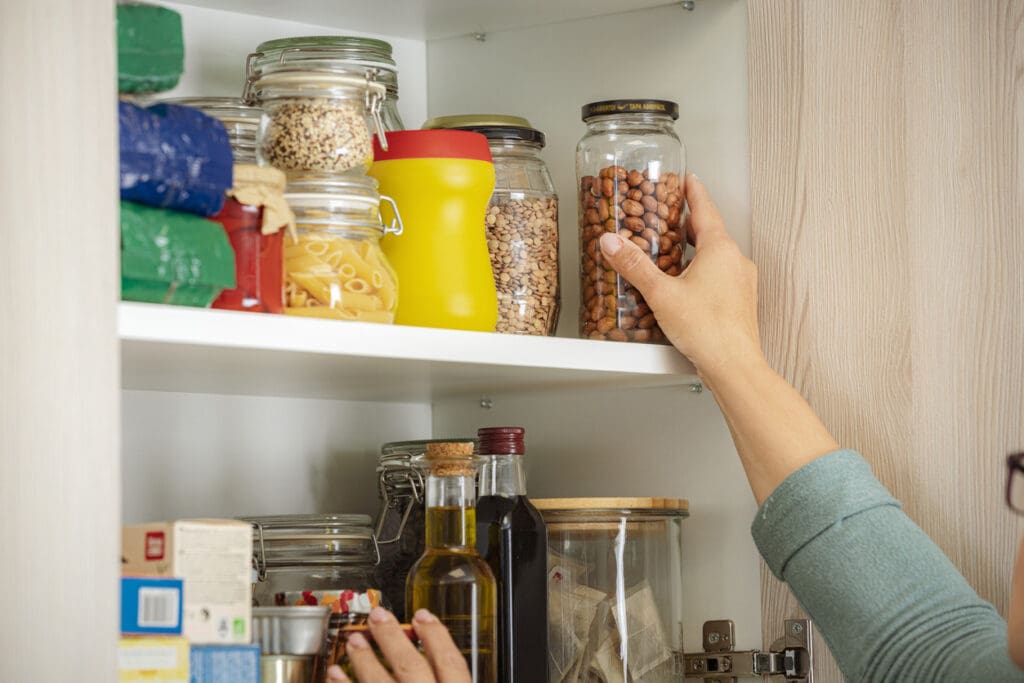
Building a pantry that supports both your health and the planet doesn’t require a massive overhaul—just a few intentional choices. A well-stocked, sustainable pantry not only makes everyday meals easier but also helps reduce waste, support local farms, and create lasting habits around wholesome eating. Whether you’re new to sustainable living or simply want to refine your kitchen practices, this guide will walk you through the must-have sustainable pantry staples and healthy pantry essentials that nourish both body and Earth.
When shopping for canned foods, it’s important to choose healthier options such as low-sodium or no-salt-added varieties.
From eco-friendly food storage solutions to carefully selected organic pantry items, creating a kitchen that balances nutrition and sustainability is easier than you might think. Let’s dive in.
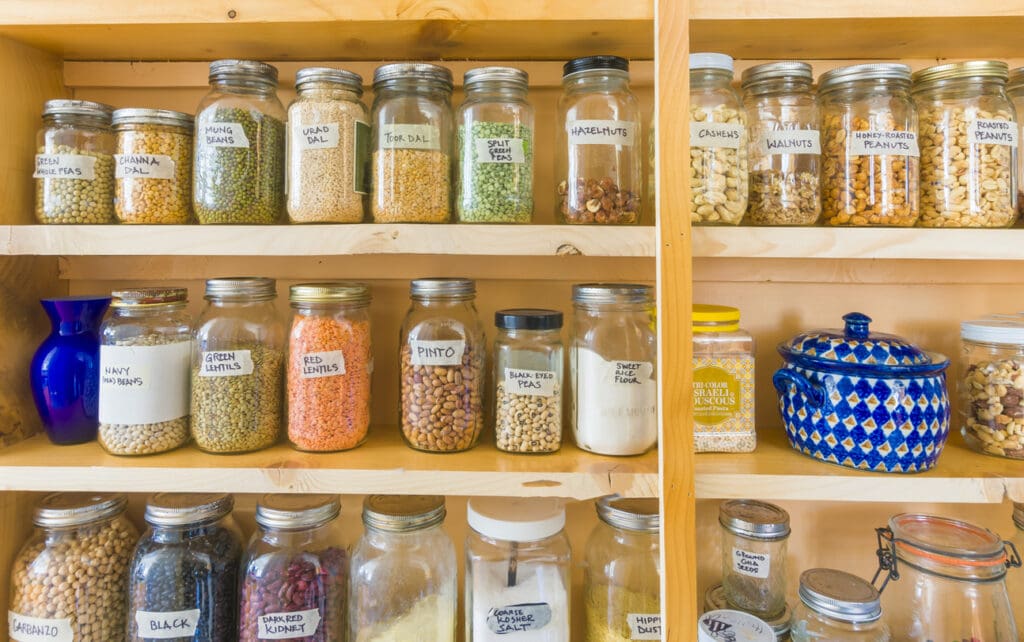
A sustainable pantry is more than a collection of shelf-stable goods—it’s a foundation for smarter, healthier, and more responsible living. When we stock our kitchens with intention, we naturally reduce food waste, cut down on single-use packaging, and make better choices about what we put into our bodies. By focusing on whole food pantry essentials and moving away from overly processed convenience items, we also foster cleaner eating habits and create more nutritious meals for ourselves and our families.
Removing highly processed foods from the pantry is crucial to creating a healthier, whole-food, plant-based kitchen.
Just as important, when you begin buying bulk organic foods and supporting brands that prioritize ethical sourcing and regenerative practices, you become an active participant in building a more just and sustainable food system. Your pantry becomes a daily reflection of the values you care about—health, flavor, and sustainability.
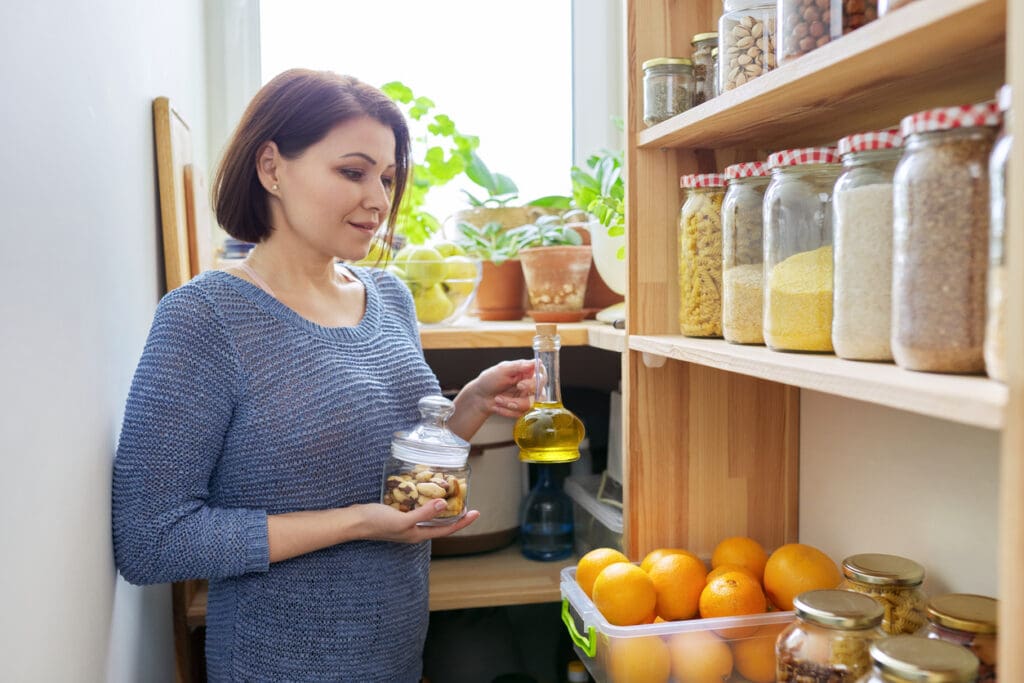
Purging and organizing your pantry is the first step towards creating a sustainable pantry. Start by removing all expired, spoiled, or unwanted food items from your pantry. This not only clears up space but also ensures that you’re not holding onto items that could potentially go to waste.
Next, sort items into categories such as grains, canned goods, and snacks. This makes it easier to see what you have and what you need, helping you avoid duplicate purchases. Consider donating unopened, non-perishable items to a local food bank or shelter to support your community and reduce waste.
Once you’ve purged your pantry, wipe down shelves and containers with a natural cleaner to remove any dust or debris. Use airtight containers and labels to store and organize your pantry staples, such as flax seeds, chia seeds, and AP flour. Keeping frequently used items front and center, and storing less frequently used items towards the back or on higher shelves, will make your pantry more functional and efficient.
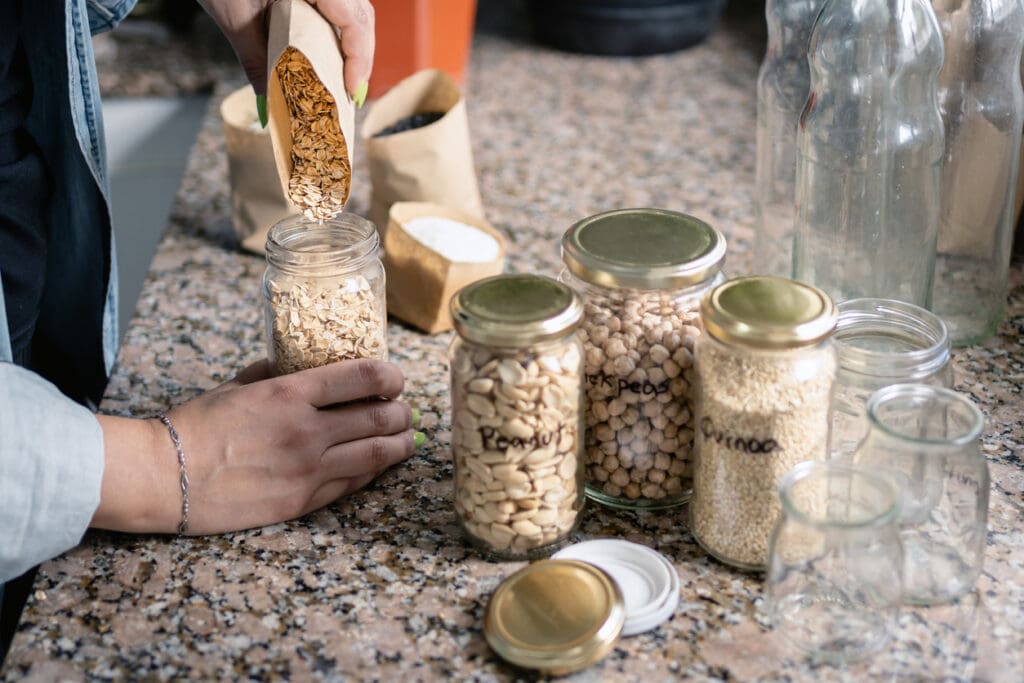
When you’re just getting started, the key to success is stocking your pantry with versatile, nutrient-dense ingredients that have long shelf lives and wide applications. Some of the most valuable plant-based pantry staples include dried beans and lentils, which are rich in fiber and protein, and serve as the base for a variety of meals. Whole grains such as quinoa, oats, brown rice, and buckwheat offer slow-burning energy and can be used in everything from breakfast bowls to casseroles.
Nuts and seeds—like almonds, sunflower seeds, and chia—are essential additions too. They not only serve as snacks but also add texture and nutritional value to recipes. Alongside these, having organic flours such as stone-ground whole wheat, rye, or spelt allows you to bake and thicken sauces while steering clear of heavily refined products. Crackers are another nutritious snack option within a whole-food, plant-based diet, providing convenience and essential nutrients. These non-perishable healthy foods are foundational for cooking from scratch with confidence, all while supporting a cleaner, more sustainable kitchen.
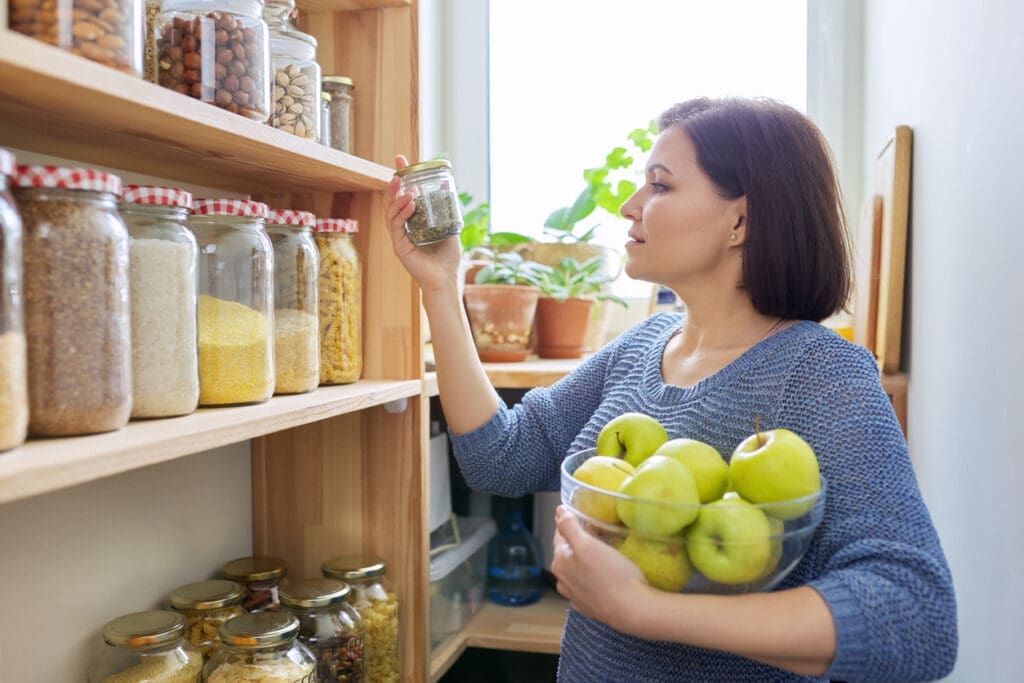
To bring your pantry to life, you’ll also need a set of everyday healthy pantry essentials that add flavor and depth to your meals. Organic olive oil, avocado oil, and coconut oil are staples for cooking and dressings, and they provide healthy fats without harmful additives. Instead of relying on processed sweeteners, natural alternatives like raw honey, maple syrup, and dried dates offer sweetness with nutritional benefits.
Adopting a plant-based diet can further promote healthy eating habits and sustainability, making meal-planning more eco-friendly and nutritious.
Keeping a variety of herbs and spices on hand adds excitement to even the simplest meals. Whenever possible, choose organic and store them in refillable glass jars to align with eco-friendly food storage habits. Items like apple cider vinegar and gluten-free tamari or coconut aminos are versatile for marinades and dressings, and also support gut health. With these basics, you’ll always be prepared to whip up quick, flavorful meals that are good for both your body and the environment.
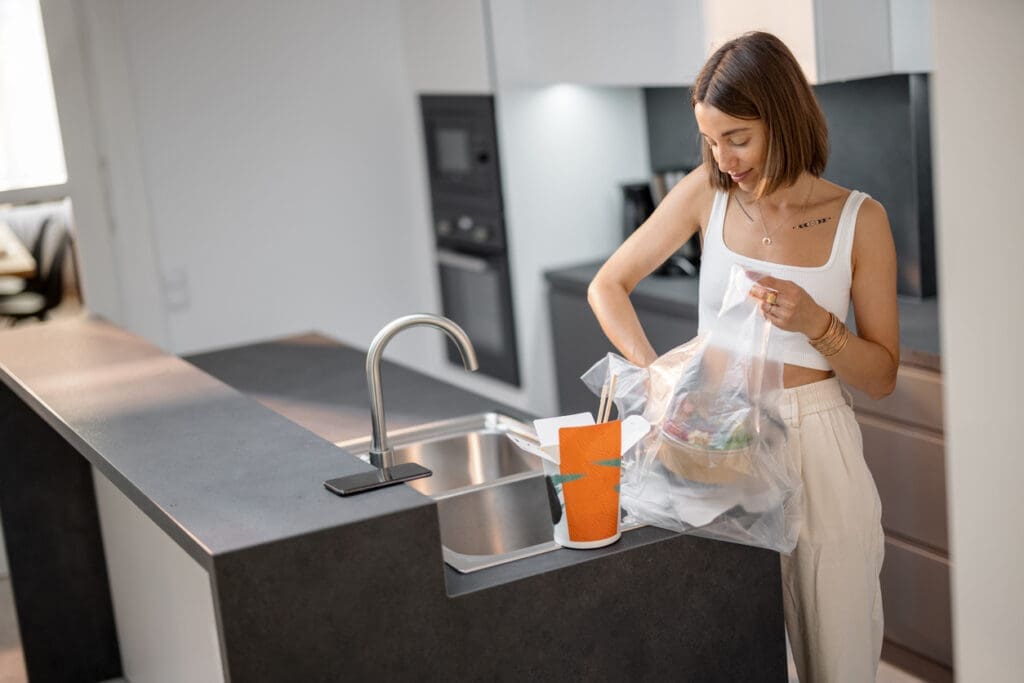
Sustainable shopping and meal planning are crucial components of maintaining a sustainable pantry. Start by planning your meals for the week, taking into account what you already have in your pantry and what’s in season at your local farmer’s market. This not only helps reduce food waste but also ensures that you’re eating fresh, seasonal produce.
Make a grocery list and stick to it to avoid impulse buys and reduce food waste. Choose whole, unprocessed foods whenever possible, and opt for plant-based protein sources like beans and lentils. Consider buying in bulk and using reusable containers to reduce packaging waste. Shopping at local farmer’s markets or joining a community-supported agriculture (CSA) program supports local farmers and reduces carbon emissions.
Using a meal planning app or website can help you plan and organize your meals, and keep track of what you have in your pantry. This ensures that you’re making the most of your pantry staples and reducing food waste.
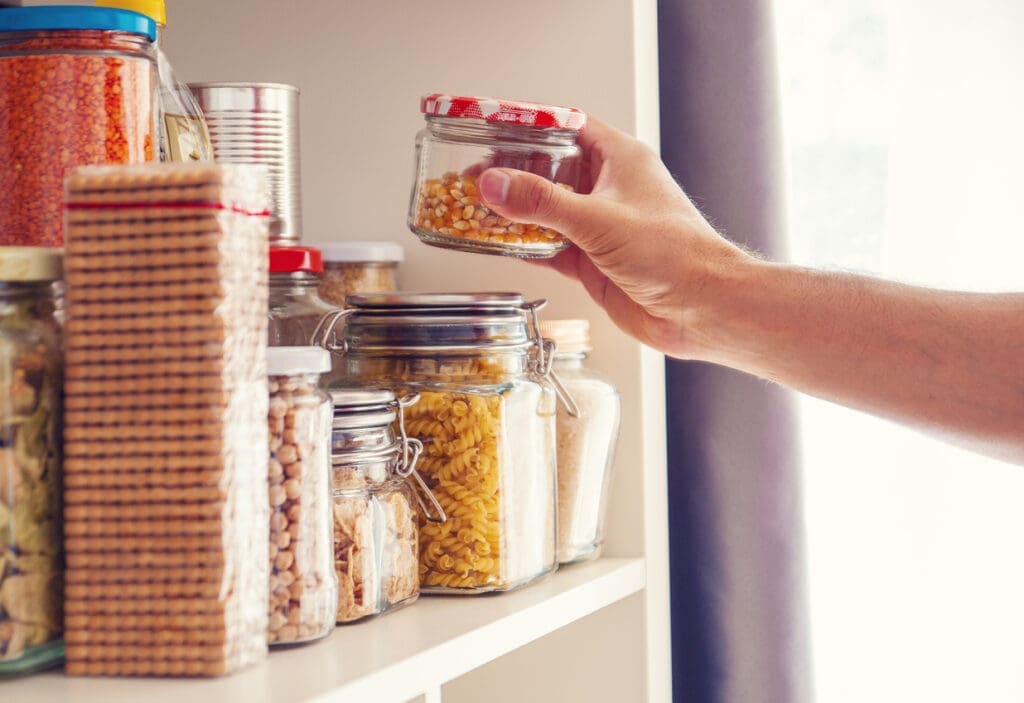
Building a sustainable pantry isn’t just about what you buy—it’s also about how you store it. Embracing eco-friendly food storage habits will extend the life of your pantry items and reduce your dependence on disposable packaging. Glass jars are ideal for storing dry goods, from lentils to grains to spices, as they are reusable, non-toxic, and make it easy to see what you have. Silicone storage bags are a smart alternative to plastic zip-top bags, perfect for storing leftovers or bulk snacks without creating more waste.
If you’re storing bread, cheese, or produce, beeswax wraps offer a breathable, reusable way to preserve freshness. For larger items or bulk dry goods, stackable containers help keep your pantry organized while reducing food spoilage. Making these simple changes contributes to a zero waste kitchen, and reinforces your commitment to sustainability with every meal you make.
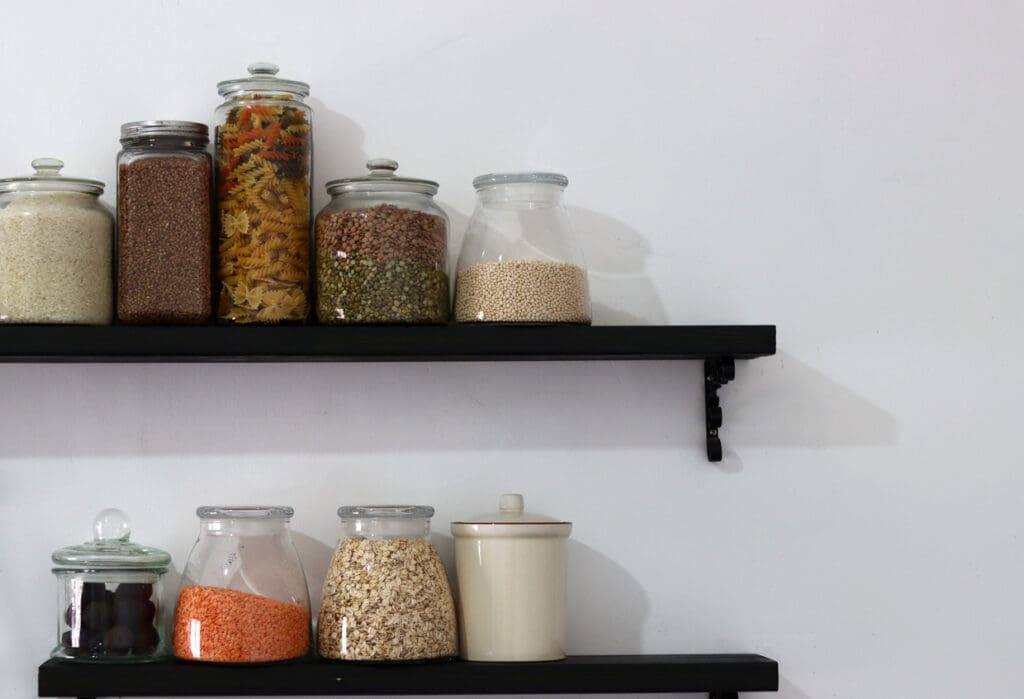
A thoughtfully arranged pantry doesn’t just look good—it helps reduce food waste and improve efficiency. Following a few core principles of pantry organization for sustainability will help you make the most of what you already have and avoid unnecessary purchases. Labeling containers with the product name and the date you added it makes it easier to keep track of freshness, while rotating your stock—using the oldest items first—ensures nothing gets forgotten or thrown away.
Transparent containers make inventorying your pantry effortless, and grouping items by function (like baking, breakfast, or meal prep) helps streamline the cooking process. When your pantry is clean, visible, and well-organized, you’re less likely to forget ingredients, duplicate purchases, or let food expire—saving money and minimizing your environmental footprint in the process.
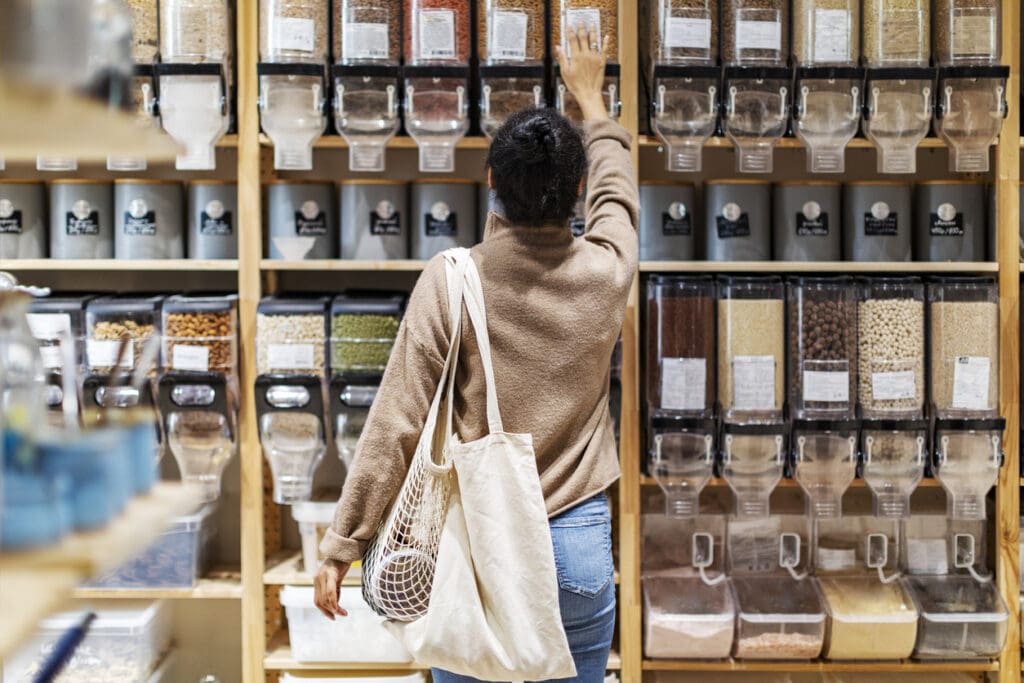
One of the most impactful things you can do for your pantry—and the planet—is start buying bulk organic foods. Purchasing in bulk reduces the amount of packaging waste that ends up in landfills and cuts down on the energy used in production and transportation. It also allows you to stock up on the items you use most often, saving money and time.
Look for opportunities to buy grains, beans, flours, nuts, seeds, and spices from local co-ops, farmers’ markets, or health food stores that offer bulk bins. Prioritize organic pantry items that are non-GMO, responsibly sourced, and produced using regenerative or organic farming methods. Choosing to stock your pantry with these kinds of foods supports a cleaner food system and allows you to feel confident in the quality of everything you eat and share with your family.
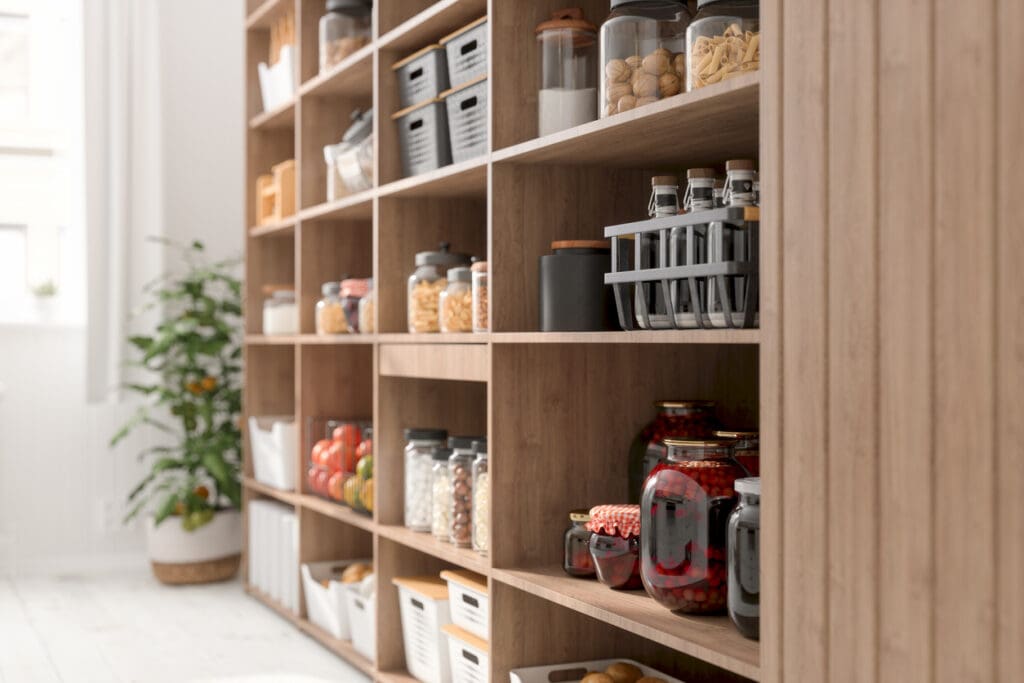
Maintaining your sustainable pantry requires regular upkeep and attention. Set aside time each week to tidy up your pantry and ensure that everything is organized and easily accessible. Check expiration dates and use up items that are approaching their expiration dates to minimize waste.
Consider implementing a “first in, first out” policy to ensure that older items are used before newer ones. Keep your pantry well-stocked with healthy staples, such as canned goods, whole grains, and nuts. Continuously monitor your pantry’s contents and adjust your shopping list accordingly.
Make adjustments to your meal planning and shopping habits as needed to ensure that your pantry remains sustainable and functional. Regular maintenance will help you stay organized and make the most of your pantry staples.

One common mistake to avoid when creating a sustainable pantry is buying too much of a single item. While buying in bulk can be cost-effective, it’s important to ensure that you have enough storage space and that the item is non-perishable.
Avoid buying highly processed or ultra-processed foods, which can be detrimental to your health and the environment. Instead, focus on whole, unprocessed foods that provide better nutrition. Don’t forget to check expiration dates and use up items before they go bad.
Neglecting to clean and maintain your pantry regularly can lead to pest infestations and spoiled food. Avoid buying single-use containers or packaging, and opt for reusable containers instead. Finally, consider your dietary needs and preferences when stocking your pantry, and make adjustments as needed to ensure that you have a well-stocked and sustainable pantry.
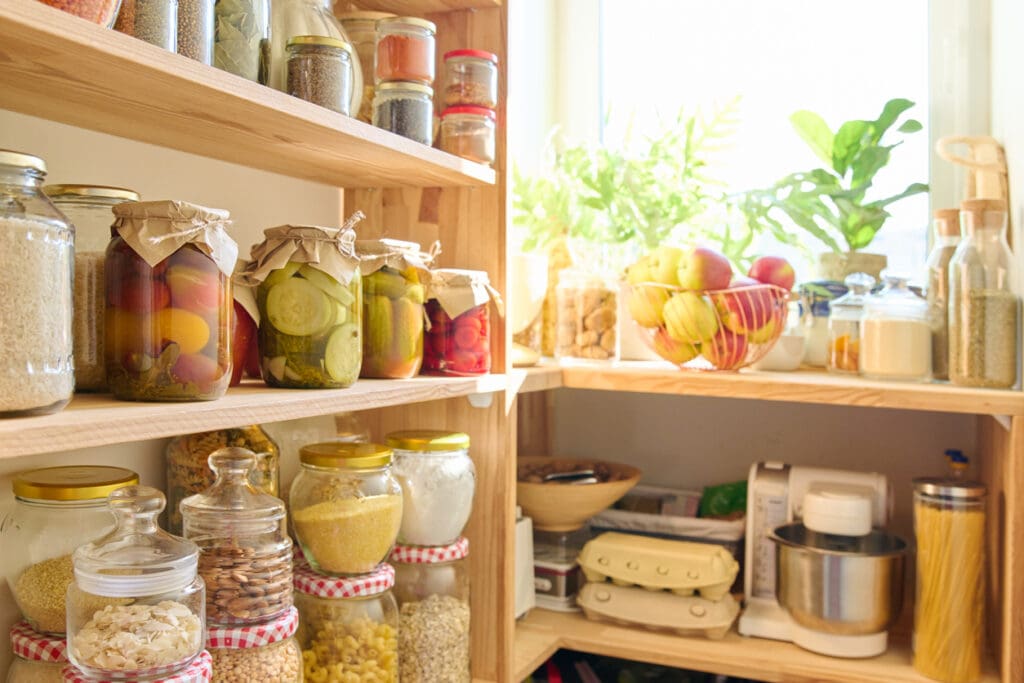
Creating a pantry that is built around both health and sustainability is an investment in your long-term well-being—and in the planet’s future. By choosing sustainable pantry staples, organizing with intention, switching to eco-friendly food storage, and seeking out organic pantry items, you set yourself up for a lifestyle rooted in flavor, nourishment, and purpose.
At Doudlah Farms, we are passionate about growing food the way nature intended—clean, organic, and regenerative. From plant-based pantry staples like heirloom beans and lentils to whole food pantry essentials like stone-ground flours and ancient grains, we offer everything you need to build a pantry that reflects your values.
Ready to fill your pantry with better choices? Explore our full line of organic products and start building your sustainable pantry today.
